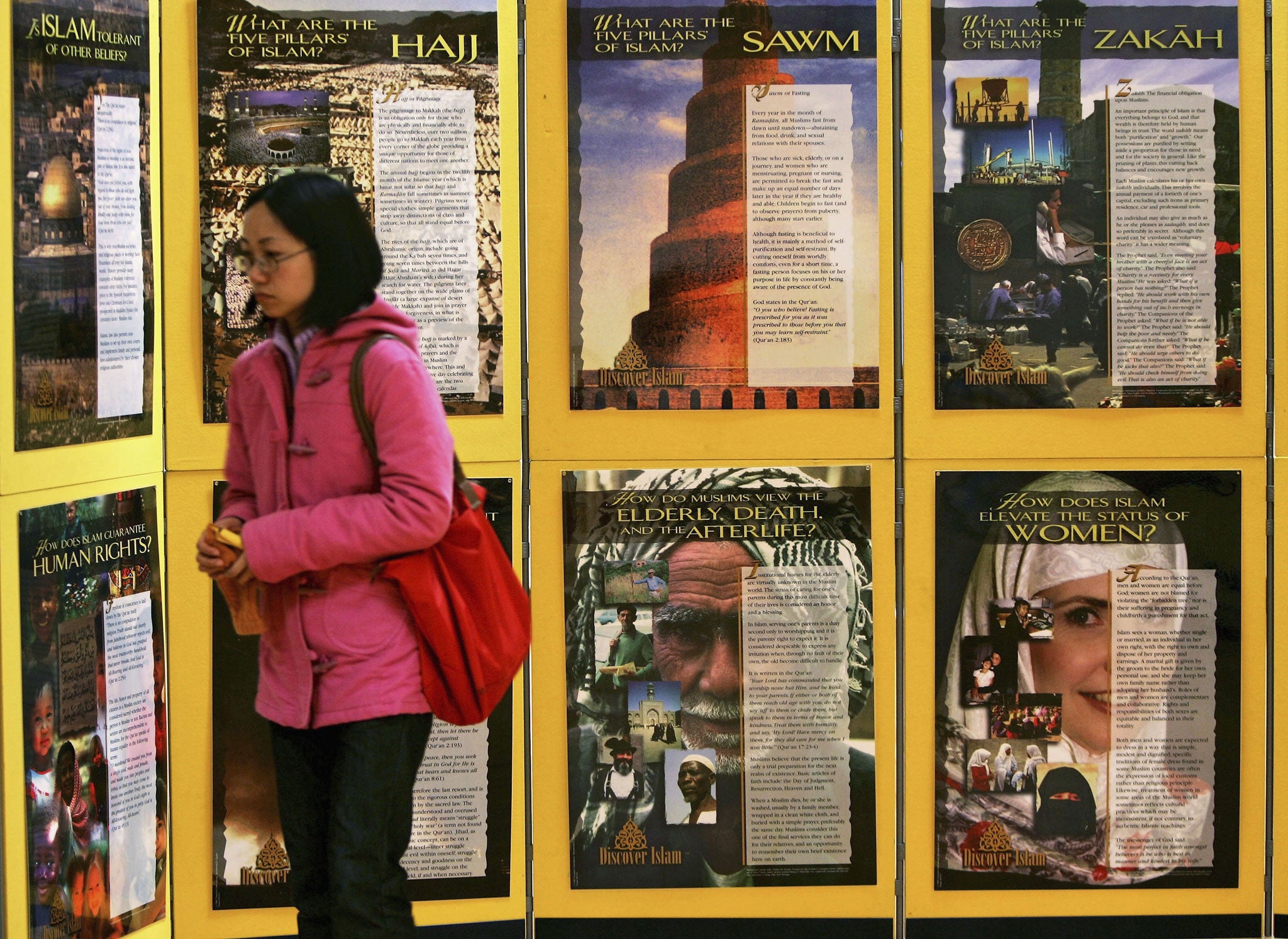I'm an atheist. But I've got faith in Religious Studies
MPs said yesterday that the potential for conflict in multi-faith areas would be reduced if young people were given classes on different religions


Your support helps us to tell the story
From reproductive rights to climate change to Big Tech, The Independent is on the ground when the story is developing. Whether it's investigating the financials of Elon Musk's pro-Trump PAC or producing our latest documentary, 'The A Word', which shines a light on the American women fighting for reproductive rights, we know how important it is to parse out the facts from the messaging.
At such a critical moment in US history, we need reporters on the ground. Your donation allows us to keep sending journalists to speak to both sides of the story.
The Independent is trusted by Americans across the entire political spectrum. And unlike many other quality news outlets, we choose not to lock Americans out of our reporting and analysis with paywalls. We believe quality journalism should be available to everyone, paid for by those who can afford it.
Your support makes all the difference.I was brought up by painfully atheistic parents. As a family, the closest we came to worship was listening with absolute reverence to Radio 4’s Today programme every morning, and even that was turned off if ‘Thought for the Day’ got a bit too spiritual.
My primary school was Church of England though, and from the age of five I prayed before lunch, sang hymns after school and listened to Bible readings in assembly. Throughout my education I became fascinated by the notion of different belief systems and eventually managed to persuade my reluctant parents to let me study Religious Studies at A-Level and ultimately university, convincing them that choosing a degree in RS was not akin to taking holy orders. (If anything, I felt my agnostic approach allowed me to consider different religions with an open mind.)
I chose the subject, in part, because I could see its relevance in a world eaten up by its obsession with faith. Whether you follow the teachings of Christ, Buddha or Wayne Rooney, worship plays an important role in modern life. However, many religions, Islam being the most obvious, are portrayed inaccurately by the mainstream media, feeding pre-existing prejudices and stereotypes. It’s terrifying to think that reading sensationalist, anti-Muslim headlines could one day be the only religious education available to children.
MPs said yesterday that the potential for conflict in multi-faith areas would be reduced if young people were given classes on different faiths. According to Stephen Lloyd MP, religious education “prepares children for the challenges and opportunities of multicultural life, and helps them live harmoniously with others”. So why don’t we take religious education seriously?
Often seen as a “soft” subject, Religious Studies has, in recent years, been edged out of the school timetable, a casualty of the government GCSE reform programme.
In November 2013, a study found 33 per cent of non-religious secondary schools and 35 per cent of academies were failing to offer the subject at all for students aged 14 to 16, and of the schools which did offer the subject, 16 per cent reported a reduction in the amount of time devoted to it in Year 10, the first year of GCSEs. Staggeringly, over 50 per cent of secondary school RE teachers have no qualification or expertise in the subject, a statistic that would surely horrify parents if applied to Maths, History or Biology.
It strikes me as absurd, not to mention dangerous, to relegate Religious Studies to the status of a second-class subject, taught by class assistants and teachers trained in other disciplines. As well as teaching children about different faiths, a good Religious Studies teacher should also address contentious issues such as abortion, euthanasia, gay marriage, and religious extremism, providing students with a safe environment in which to ask difficult questions. Lumping it in the same pot as Media Studies and Food Technology diminishes its significance and implies that learning about other cultures is not important.
If prejudice stems from a lack of information, and I think we can all agree that it does, it’s foolhardy to dismiss a subject which offers a solution. Properly taught Religious Studies is the first step towards harmony in multi-faith communities and a victory in the battle against extremism. Not such a soft subject now, eh?
Join our commenting forum
Join thought-provoking conversations, follow other Independent readers and see their replies
Comments